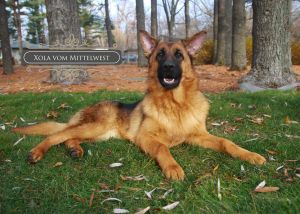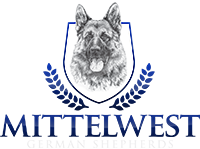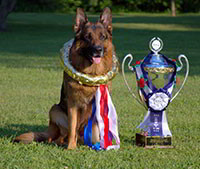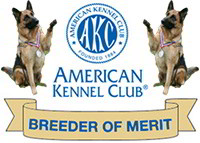Summary:
German Shepherds are considered a large dog breed. Adult males weigh 65–90 pounds, while females range from 50–70 pounds. Their build, rapid growth, and overall strength place them firmly in the large-breed group. Owners should plan for big-dog needs in diet, exercise, training, and joint care. German Shepherds sit between medium dogs and giants, making them powerful yet still manageable companions.
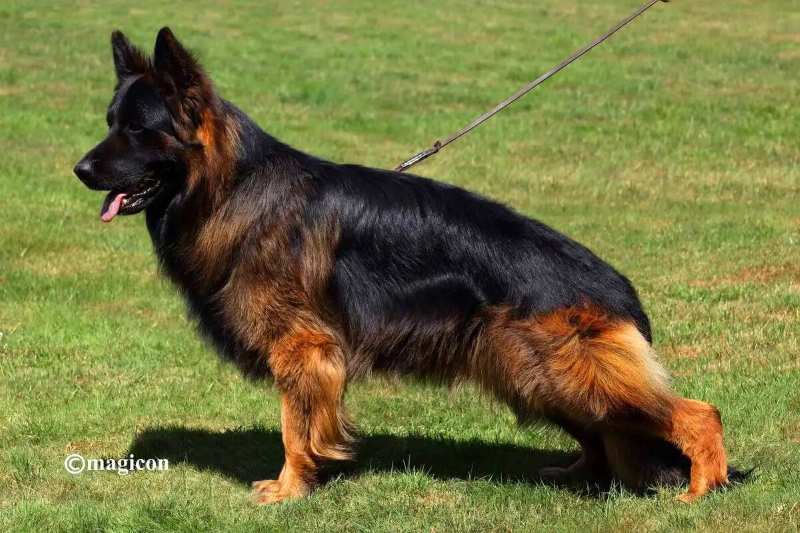
When people first bring home a German Shepherd puppy, they may be surprised by how quickly it grows. Within a year, that little ball of fur transforms into a powerful, athletic dog. It raises the question many new owners ask: Is a German Shepherd considered a large breed?
The answer matters because size classifications affect everything from diet to exercise routines. Learning where German Shepherds fit on the scale helps owners prepare for their needs. Let’s take a closer look at how they measure up and what it means for families raising one.
Is A German Shepherd Considered A Large Breed Dog?
The short answer is yes. The German Shepherd dog is widely recognized as a large breed according to most kennel club standards. Adult males typically weigh between 65 and 90 pounds and stand 24 to 26 inches tall at the shoulder. Adult females are a bit smaller, ranging from 50 to 70 pounds and standing 22 to 24 inches tall.
These numbers put German Shepherds well above medium-sized dogs but not quite into the “giant” category reserved for breeds like Great Danes or Mastiffs. Their size combines with their athletic build, giving them a presence that’s both strong and graceful.
Factors That Place The GSD In The Large Dog Category
When one asks, Is a German Shepherd considered a large breed? It’s not just about weight on a scale. Several traits consistently put them in the large-breed category, and together they explain why owners need to approach care with this in mind.
| Factor | What It Shows |
| Bone structure and body mass | A solid frame and muscle density give them the strength expected of large dogs. |
| Athletic frame | Despite their size, they move with balance and stamina, traits of large dogs from the working group. |
| Growth rate | Rapid growth in the first year is typical of large breeds and requires careful management. |
| Average lifespan | At 9–13 years, their lifespan aligns with other large dogs, shorter than smaller breeds. |
| Health considerations | Prone to hip and elbow dysplasia, conditions most common in large-breed dogs. |
| Strength and work capacity | Their ability to herd, protect, and perform demanding tasks reflects large-breed power. |
These factors go beyond simple height and weight measurements. They show why the German Shepherd is firmly classified as a large breed and why owners should prepare for the responsibilities that come with raising one.
Why Size Classification Matters For Owners
Calling a German Shepherd a large breed is not just a technical detail. Their size affects how you feed them, how you train them, and even how you set up your home. By understanding what their size means in everyday life, you can give your dog the care it truly needs.
Feeding & Nutrition
Big dogs need food that matches their bodies. German Shepherd puppies grow fast, and large-breed formulas are designed to protect their bones and joints during that stage. As adults, they require a diet that provides steady energy without adding unnecessary weight.
Exercise Requirements
German Shepherds cannot stay healthy with a quick walk around the block. Their bodies are built for real activity. Long walks, running, agility training, or structured play sessions keep them strong and satisfied. Without enough exercise, they may develop problem behaviors.
Space Considerations
Size matters when it comes to living arrangements. A GSD can adapt to an apartment if you commit to daily exercise, but they are happiest when they have room to move. Their size also means you need larger crates, beds, and vehicles to keep them comfortable.
Training Approach
Training a German Shepherd from the start is non-negotiable. Behaviors that seem small in a toy breed, like jumping on people or pulling the leash, become serious challenges when a full-grown Shepherd does them. Early, consistent training keeps those habits under control.
Joint & Orthopedic Care
Big dogs put more pressure on their joints. Over time, that can lead to discomfort if you are not proactive. Simple adjustments, like using supportive flooring, adding ramps, or talking to your vet about supplements, can make a big difference as your dog ages.
Owning a German Shepherd means taking their size into account every single day. When you prepare for their needs in feeding, exercise, training, and health, you set them up for a long, happy life as part of your family.
How German Shepherd Dogs Compare To Other Large Breeds
A simple way to get a perspective on the German Shepherd’s size is to see where they fall alongside other dogs. When you line them up against medium-sized breeds like Border Collies or Australian Shepherds, the difference is clear. GSDs are taller, heavier, and built with more power. While many medium dogs weigh between 30 and 50 pounds, German Shepherds often double that range.
At the same time, they are not in the same league as true giant breeds. Dogs like Great Danes or Saint Bernards can tip the scales at over 120 pounds and tower several inches higher. German Shepherds sit comfortably in between, which is why they are classified as large dogs rather than giant ones.
So, is a German Shepherd considered a large breed dog? Absolutely. They are large enough to need special care and planning, but not so massive that they are unmanageable for most families. That balance of size and agility is part of what makes them such a popular choice.
Frequently Asked Questions About German Shepherd Dogs
Owners and enthusiasts often have more questions about German Shepherds. Here are a few common ones that help fill in the gaps.
Do German Shepherds Shed A Lot?
Yes, German Shepherds are known for heavy shedding. Their double coat sheds year-round, with heavier “blowouts” in spring and fall. Regular brushing helps keep the loose hair under control.
Are German Shepherd Dogs Good With Children?
German Shepherds can be excellent with children when raised with structure and supervision. Their protective nature makes them loyal companions, but they need training and guidance to channel their instincts properly.
Can GSDs Live Comfortably In Apartments?
They can adapt to apartment living if they receive enough exercise and mental stimulation. Daily walks, training, and play sessions are important to keep them balanced in smaller spaces.
How Smart Are German Shepherds Compared To Other Breeds?
GSDs are among the most intelligent dog breeds. They are quick learners and excel at tasks that require focus, which is why they’re often chosen for police, military, and service work.
Do They Get Along With Other Pets?
With proper socialization, German Shepherds can live peacefully with other pets. Early introductions and consistent training are key to helping them understand boundaries with cats and smaller dogs.
Knowing the answers to these common questions helps families decide if this remarkable breed is the right fit for their lifestyle. Although these answers give a clearer picture of the breed, raising a large dog like the German Shepherd often benefits from the guidance of a dedicated breeder.
Mittelwest German Shepherds On Raising Large Breed Dogs
Owning a German Shepherd means understanding what it takes to raise a large breed properly. Mittelwest German Shepherds in Wonder Lake, IL, focuses on producing dogs with balanced structure, steady temperaments, and strong health so they can thrive as both companions and workers.
We also guide families on how to care for their dogs as they grow. From choosing the right food to setting up exercise routines, we emphasize the importance of treating German Shepherds as large dogs with specific needs. With the right foundation, they become not only impressive in size but also reliable and adaptable in every setting.
Raising a large breed can feel like a big responsibility, but with proper support and guidance from a German Shepherd dog breeder, it’s a rewarding journey. If you’re ready to bring home a puppy, Mittelwest German Shepherds is here to help you enjoy every stage of life with this extraordinary breed.
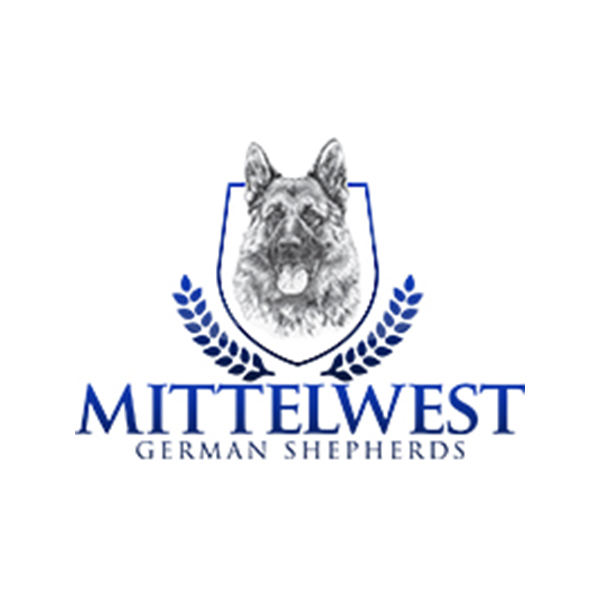
Julie Martinez is a German Shepherd breeder and the owner of Mittelwest German Shepherds in Wonder Lake, Illinois. She breeds German Shepherd Dogs under the “vom Mittelwest” kennel name and is listed as a breeder on the AKC Marketplace. Through her breeding program, Julie focuses on German-bred bloodlines and works with owners who value structure, temperament, and real-world working ability. She is also involved in local working-dog training through the Wonder Lake Schutzhund Club, where Mittelwest supports hands-on development such as tracking and club training.

